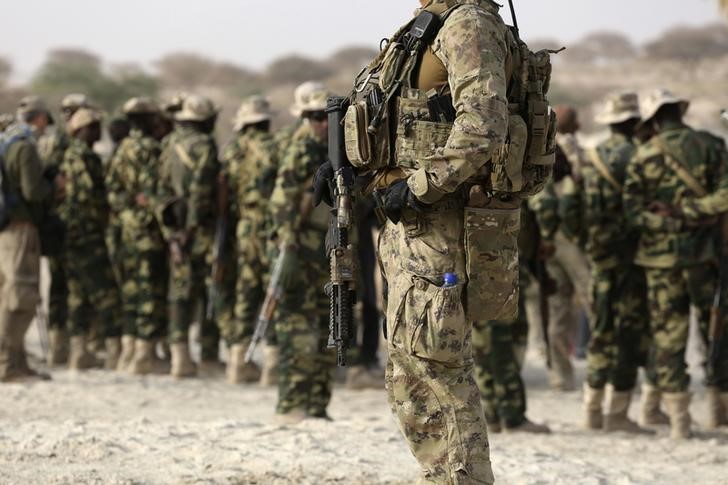By Josh Smith
KABUL (Reuters) - Afghan soldiers and police brought to the United States for training go "absent without leave" at far higher rates than those of any other country, potentially imperilling efforts to assist Afghan security forces, a U.S. watchdog said on Friday.
Of the 320 foreign military trainees who left while on courses in the United States from 2005 to 2017, 152 - or more than 47 percent - were Afghans, said a report by the Special Inspector General for Afghanistan Reconstruction (SIGAR).
The State Department called that number "unacceptably high". SIGAR found that the rate of asylum seekers among Afghan military trainees rose in recent years as violence in the Islamist Taliban insurgency spread across Afghanistan and security forces sustained heavy casualties.
In 2016, for example, the percentage of Afghan trainees who went AWOL (absent without leave) jumped from an historical average of about 6 or 7 percent to 13 percent, the report noted.
That's compared to an average of about .07 percent of trainees from other countries, according to SIGAR.
"The tendency of Afghan trainees in the United States to go AWOL may hinder the operational readiness of their home units, negatively impact the morale of fellow trainees and home units, and pose security risks to the United States," it concluded.
Only 27 of the Afghans who left their training have been arrested or removed by U.S. police, SIGAR said, with most of the other 83 either unaccounted for or having fled the United States.
Many of the Afghans who seek asylum in the United States say their lives would be in danger if they returned home.
Although Afghan trainees are considered "high risk" because of their military training and "fighting age," SIGAR said it was "not aware of any acts of terrorism or similarly serious acts" involving them.
In response to the high number of Afghans who go AWOL, the U.S. government has reduced the number of training courses it offers, and Afghan commanders are also more reluctant to allow their troops to attend.
That has disappointed some members of the Afghan security forces who told SIGAR they are paying a price because of their colleagues who run away. "If a student absconds, it affects his unit," one Afghan officer told investigators.
Between 2005 and 2017 the U.S. military brought more than 2,500 Afghan soldiers and police to the United States for training, including programs that trained pilots for the nascent Afghan Air Force and special forces, according to SIGAR.
